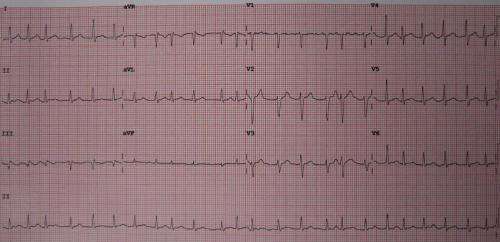Atrial fibrillation less deadly than it used to be, but still cause for concern

A first-of-its-kind study by researchers from the Boston University School of Public Health (BUSPH) shows a decline in deaths related to atrial fibrillation (irregular heartbeat) over the last 45 years.
But the study, published in the journal BMJ, finds that the increasingly common condition still takes an average of two years off of a person's life, compared to three years back in the 1970s and early 1980s.
"The prognosis of individuals with atrial fibrillation has improved over time, but atrial fibrillation is still associated with a major gap in life expectancy as compared to individuals without atrial fibrillation," says study senior author Dr. Ludovic Trinquart, associate professor of biostatistics at BUSPH.
Trinquart and colleagues at BU and in Denmark used data from the BU-based, multigenerational Framingham Heart Study, the longest-running cardiovascular health study in the United States.
"The Framingham Heart Study is one of the only studies in the world that allow studying such temporal trends," says study lead author Dr. Nicklas Vinter, a physician at Silkeborg Regional Hospital and doctoral student at Aarhus University in Denmark.
The researchers analyzed health data from three generations of Framingham Heart Study participants from 1972 to 2015, tracking the likelihood of a participant dying 10 years after an atrial fibrillation diagnosis, compared with someone of the same age, sex, and with otherwise similar health.
In the first period (1972-1985), a participant with atrial fibrillation lived an average of 2.9 fewer years 10 or more years after diagnosis than a comparison participant without atrial fibrillation.
In the second period (1986-2000) the gap narrowed to 2.1 years, and in the third period (2001-2015) it was 2.0 years.
"Improvement in the excess mortality associated with atrial fibrillation may be explained by continued improvements in early detection, management, and treatment," Trinquart says. "But the findings of this new study highlight that atrial fibrillation remains a very serious condition. Advances in prevention will be essential to stem the epidemic of atrial fibrillation and reduce its associated mortality."
More information: Nicklas Vinter et al. Trends in excess mortality associated with atrial fibrillation over 45 years (Framingham Heart Study): community based cohort study, BMJ (2020). DOI: 10.1136/bmj.m2724




















